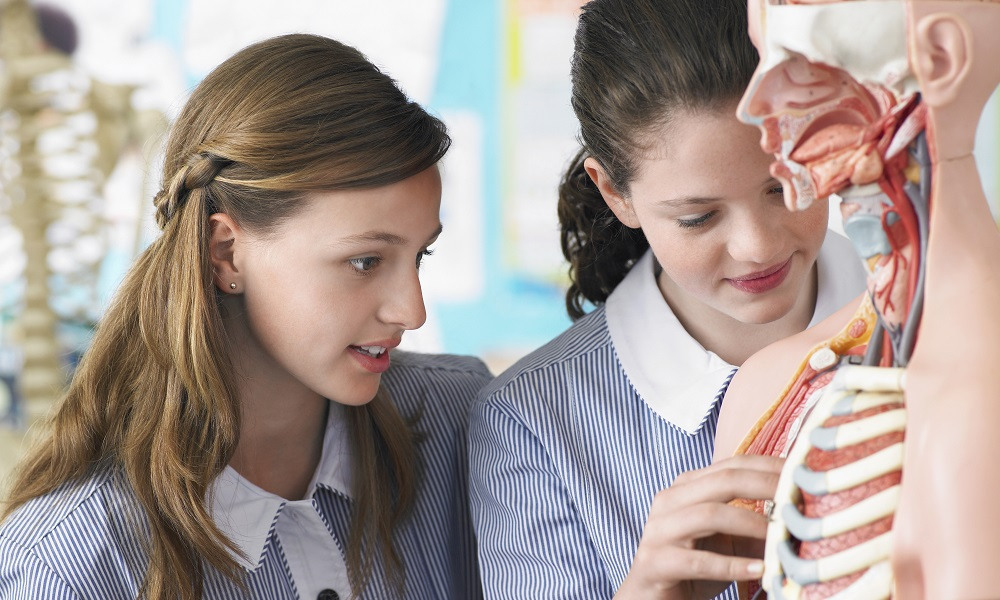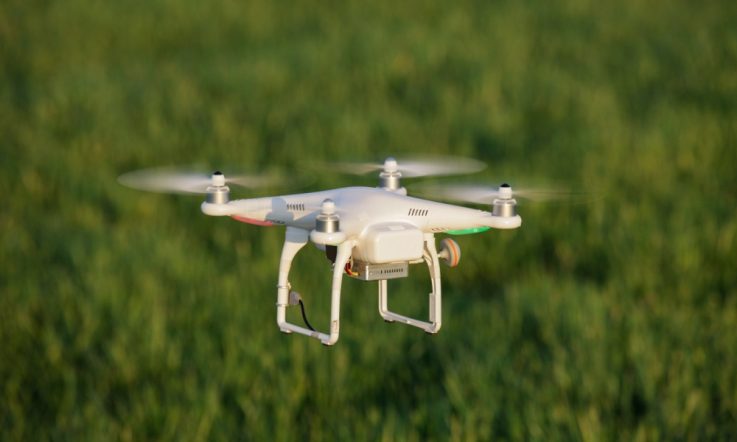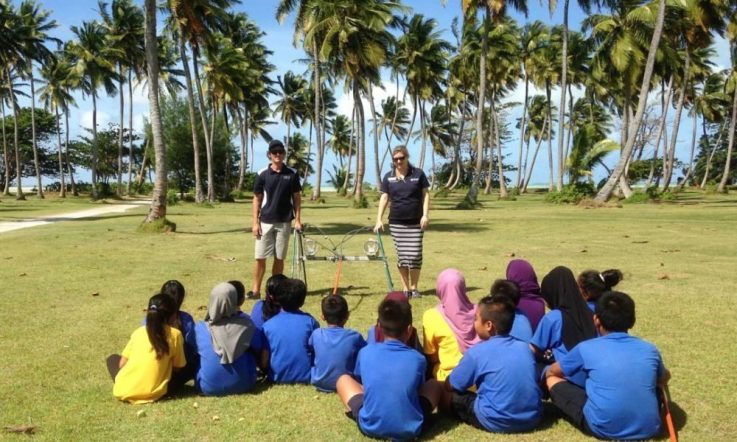Hello, I'm Jo Earp. Thank you for downloading this podcast from Teacher.To mark National Science Week, Episode 13 of The Research Files hears from Professor Jim Pellegrino from the Learning Sciences Research Institute at the University of Illinois in Chicago. Professor Pellegrino was one of the speakers at ACER's Research Conference 2015 earlier this month. I caught up with him at the event to talk about shaping science learning for the future.
Jo Earp: Professor Jim Pellegrino, welcome to The Research Files and Teacher magazine. Can you, first of all, give listeners a brief overview of the work that's happening in the US in terms of science curriculum and assessment? You've been involved in that for a few years haven't you?
Jim Pellegrino: Well the major change that's underway in the United States with respect to science curriculum, instruction and assessment is driven by, first, a report that came out of the National Research Council which was to develop a framework for K-12 science education which articulated, what you might call, a new vision for what it is that we want students to know and be able to do across the span of K-12 science education.
That came out in 2012, and it was supposed to serve as the basis for generating a new set of science standards. [These] were developed by a group called Achieve, with the input from many states. And those came out in 2013/2014.
The real important point about all that work is that it has defined the nature of what it is we want students to know and be able to do in science in terms of three interconnected components.
One is core disciplinary ideas in areas of life science, physical science, earth and space science, connected to a set of what is called 'science and engineering practices'. You might think of them as the forms of reasoning scientifically - using models, constructing explanations, being able to develop evidence-based arguments that are related to these core disciplinary ideas, that demonstrate that you really understand those ideas because you can use them to explain phenomena, predict things, etcetera.
And then the third component is what we call the third dimension, or these cross-cutting concepts which run across the sciences, like structure and function, patterns, and things like that. So the idea is that ... the way in which we now describe what students are supposed to know and be able to do, is in terms of what we call ‘performance expectations'. And they are statements that have to do with a practice wrapped around some aspect of core disciplinary knowledge. And those begin to define the expectations we have for where students are supposed to be at the end of a particular grade level, or grade band, and then across the continuum from K-12.
JE: Actually it's interesting that you mention continuum, I did want to pick up on that. One of the things you said in your presentation at Research Conference was about core ideas ... and making sure that they are delivered systematically throughout year levels and the importance of that.
JP: One of the things that NRC framework did was identify these core ideas in these disciplinary areas – life science and physical science... And one of the things that makes them a core idea is that ... you can start teaching students about them early and develop increasing sophistication with respect to the understanding of that idea. You might think of it as a 'deep principle' in life science or physical science where you can start at an early level because it's connected to, you might say, observable phenomenon. And then you can move to levels of unobservable explanations that maybe are at the atomic level, or are on different scales.
What makes it a core idea is that you can think about teaching it continuously over time with increasing sophistication, and the sophistication comes in terms of a deeper understanding of that core idea or those principles, as well as the range of phenomenon that you can now use it to explain.
JE: Now I mentioned that you just finished presenting, we're catching up just after the conference actually, at ACER's Research Conference for 2015. You spoke to delegates there about all kinds of things to do with assessment and integrating that in science, and you mentioned that 'really good assessment looks a lot like really good instruction'. Can you just explain a little bit about what you mean by that?
JP: Well I think the essence of the idea is that when we design an assessment, or a task, or a situation that we want to call ‘assessment', one of the things that should be guiding that is that it should be related to some really important claim we want to make about what students know and should do. And it should give you evidence that would support that claim.
Well, to get that kind of evidence we need to think about the, you might sort of say, the elements of the task that make it interesting and challenging and that will give us a window into students' thinking and reasoning - let's say about their ability to use an idea like the particular nature of matter, or something that has to do with cellular function.
What I mean by then 'a really good assessment task looks a lot like a really good instructional task', is that the kinds of tasks that we should be presenting to students for purposes of assessment, are ones that we should be able to defend as "this is an interesting problem for a student to solve, it's exactly the same kind of problem we might pose in the classroom as a part of their learning activities".
So in some ways [at] one moment in time a task could be viewed, or a situation, as one that you are using for instruction because you are getting the students to grapple with important ideas, so they can learn from trying to answer the question. At another moment in time you are using the task for purposes to see to what extent have they actually developed that understanding, and can it give me evidence of where they are now.
But it shouldn't be that different, in some ways, from the learning that's been going on and the instruction that's been going on. I think many of our assessment tasks are, what you might call, sort of simplifications, or they're distortions. We create, sort of, these ‘pseudo problems' because we get control over the situation, they have desirable measurement properties, but they don't look at all like interesting questions to ask kids; they look like interesting questions to put on a test.
JE: Actually you mentioned that in the panel discussion about assessment for learning, assessment of learning, and this, assessment as learning.
JP: Yeah, I think that we need to understand that many times the questions that we ask students as a normal part of teaching and learning are opportunities for learning. Because if we ask good questions and students try to answer those, in the process of trying to answer the question they'll learn something about the phenomenon and what it is that they're understanding and not understanding. So that's what I think some of us think about ...
You can have assessment that is functioning as an assessment of the learning you've done. You can have it function in terms of giving information to a teacher which is for learning, for future learning because it gives diagnostic information, and it can function as learning because in the process of doing the assessment task the student is actually learning something about the phenomenon, their own thinking and what they're clear about and what they're not clear about. In some ways it gives them good feedback about "do I really understand what this situation is?".
JE: The final thing I wanted to talk about was another comment that you made. I think it was something I was saying to you earlier, and I don't think we talk about often enough really. How important it is for teachers in a classroom setting (your area that you work in is science) to understand how to select an appropriate task and then use it at the appropriate time?
JP: The issue I think that's challenging for teachers is to sort of think about this whole trajectory of where are we trying to get kids to in terms of their learning, where are my kids now, and what's it going to take to move them along.
That's where assessment can play a very valuable role in the sense that good assessment tasks, if they're selected at the right moment in time - like "I've done some instruction, I think my kids are getting this point. What kinds of task is going to give me evidence that's going to be diagnostic, that's going to tell me how much of the conceptual understanding, how much of the reasoning they've got?" - that's the hard part. That's a selection process of "what's going to be a good task, and why is it a good task to present, and what kind of information is it going to give me?".
The challenge for teachers is that it's hard to find tasks like that in many cases. The job of researchers like myself is to help design more effective tasks like that, that fit in one of these progressions. So that we can sort of say to a teacher, 'you know, here's a task that is designed to do this. This might give you information about X, Y and Z. You decide when to use it given the instruction you've done, because you have to have a sense that now is a meaningful point in time for you to present that task because you think that it's relevant'.
So it's not just about teachers, it's about teachers and the resources they have that can help them make what are very difficult decisions about "what's a good assessment for me to give at this point in time?"'.
JE: Well, as a researcher, thanks very much for sharing your expertise with our readers and listeners. Professor Jim Pellegrino, thanks very much for sharing your work with The Research Files.
For more information on the research discussed in this podcast and to access other articles and videos - visit www.teachermagazine.com.au, or join our community on social media via Facebook and Twitter.
- Make sure you don't miss a Teacher podcast, subscribe for free by visiting acer.ac/teacheritunes or www.soundcloud.com/teacher-ACER.
Find out more about the framework developed by the National Research Council (NRC) - A Framework for K-12 Science Education: Practices, Crosscutting Concepts, and Core Ideas
For information on the Next Generation of Science Standards visit http://sites.nationalacademies.org/DBASSE/BOSE/Next_Generation_Science_Education/index.htm
Is your school involved with National Science Week? Share your stories with the Teacher community by tweeting @teacheracer using the hashtag #TeacherMag.



